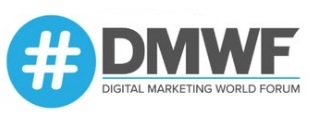
An increasing number of companies have taken their operations remote in recent times. In fact, remote work is now being considered a prominent part of the new normal. Businesses are considering keeping employees remote indefinitely, resulting in the increasing popularity of cloud-based tools.
For many marketers, extended periods of remote work may mean that they need to consider total digital transformation and adoption of cloud-based tools. This is especially important as team collaboration and communication continue to gain importance.
Marketers can certainly benefit from cloud-based tools, but there are some common mistakes that could prevent them from making the most of this technology.
Let’s see what they are.
Only using ‘marketing’-focused tools
There are plenty of cloud-based digital marketing tools that are extremely helpful for marketing tasks. But there are plenty of other programs that can help support a more productive marketing team in other ways, such as cloud data warehouses.
The warehouse-first approach allows marketers to drive all their marketing tools and platforms on a single cloud data warehouse. They don’t have to worry about problems such as data silos, outdated campaigns, extra costs, or creating multiple copies of existing data. This is because marketing teams get to work with a centralised data source, while engaging with customers in real-time.
Over time, marketers can lower their data-related spending. All team members can pull the same data from a single cloud-based data warehouse, leading to improved collaboration. Business data is not only more accurate, but also responsive and at the disposal of anyone who needs it. Because everyone works with the same numbers, there can be no scope for confusion or miscommunication, leading to more meaningful and gratifying customer experiences.
Forgetting about security
Digital marketers are now dealing with more data than ever before, much of it being sensitive customer information. Also, marketers routinely collaborate with company partners, third-party agencies, and so on. This leaves the door for cybersecurity risks wide open. It is imperative that digital marketers understand protocol for sharing information and utilise systems to keep data safe.
Many marketers assume that their data is safe and overlook the need for having strong passwords or locking their computer screen before leaving their work desk. In other cases, non-compliance with basic security regulations can expose business data to the wrong people, resulting in data leakage and breaches.
Further, marketers often conduct their business outside the office premises, which means they may use their personal computers and devices for sharing files and other business communication. Needless to say, if these devices are compromised, so will the business information.
Another concern relates to the use of unsecured Wi-Fi connections by remote employees and marketing managers. Whether it is at a coffee shop or an airport terminal, this makes them a prime target for hackers.
It is recommended to have a professional IT team conduct a cyber-security assessment and set up a clear remote work policy for the company.
Stopping short of digital adoption
Digital technologies and automation are revolutionising companies and enabling them to meet the rising expectations of customers, business associates, and employees. Digitisation has also changed the way companies fundamentally operate.
More and more customers, suppliers, vendors, and partners are using online services. They demand seamless access to products and services, along with round-the-clock response. It is, therefore, crucial for marketers to embrace digital technologies, such as digital mailroom and digital onboarding, that enable faster response times and superior customer experiences.
Digital adoption, by definition, only occurs when an entire organisation is utilising digital tools and technology to their fullest extent. It empowers the organisations to make and execute decisions faster than competitors. With the necessary data readily available, organisations can enable better decision-making throughout.
Digital adoption also helps break down barriers between departments within a company, while nurturing innovation and team collaboration. All teams get access to updated data and tools, enabling easy ideation and communication. Delaying digital adoption means denying the company the various benefits that come with it.
Conclusion
The fact that many of us are working remotely means that marketers who haven’t started using digital workflows yet will have to waste time in email back-and-forth. It means that marketing team members will struggle to be on the same page. In other words, a simple marketing plan may become unnecessarily complicated. Fortunately, these critical mistakes can be avoided. Hopefully, the above-mentioned pointers will give you an insight into why you shouldn’t postpone using digital and cloud-based technologies to further your marketing initiatives.

Interested in hearing leading global brands discuss subjects like this in person?
Find out more about Digital Marketing World Forum (#DMWF) Europe, London, North America, and Singapore.







Thank you for this amazing article.
Totally agree, we rolled out a cloud based CMS for tracking each campaigns expiring medias across over 30 media channels and 300 countries. One of our biggest challenges was helping large teams of producers accept the new way of doing things reaps them so many benefits later down the line.